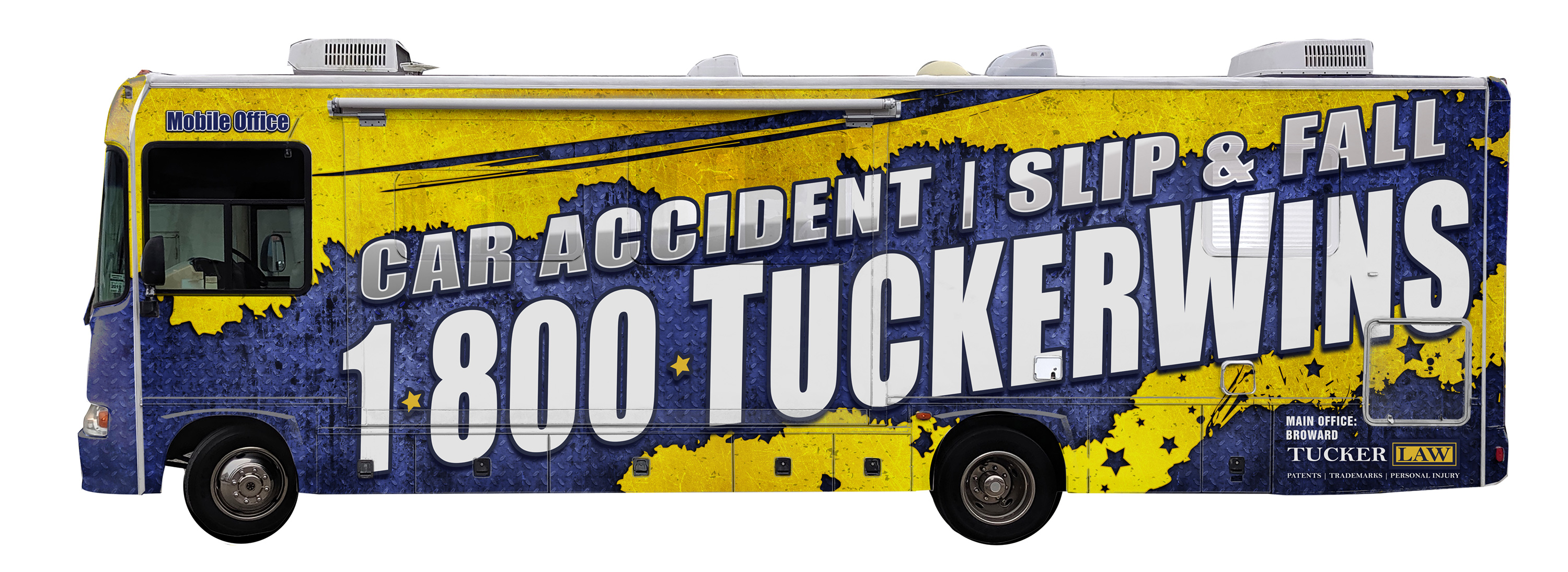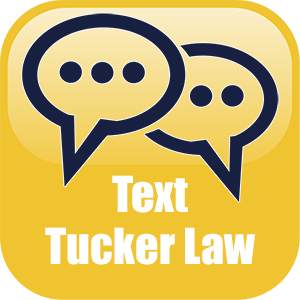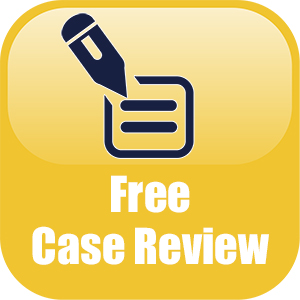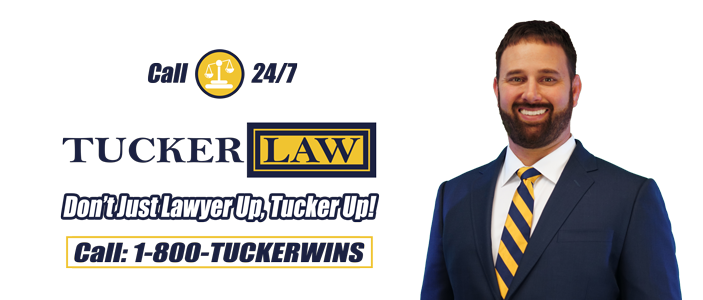

Patent Litigation Attorney
Tucker Law® is a prominent law firm that specializes in patent litigation services. Our team has extensive experience in litigating complex patent disputes and achieving favorable outcomes for our clients. As a leading patent firm established in 2013 with over a decade of experience, we possess the knowledge and resources to provide top-tier representation in patent litigation cases. We understand that every patent litigation case is unique, and we are dedicated to finding the best possible strategy for each client. At Tucker Law, we are committed to helping our clients succeed and we offer competitive rates for our patent litigation services.
Patent Litigation Process
Patent litigation can be a complicated and time-consuming process, but it is an essential tool for protecting inventors’ and businesses’ valuable intellectual property. Understanding the intricacies of patent litigation is critical for anyone looking to protect their patents, challenge others’ patents, or avoid costly legal battles altogether.
Tucker Law’s experienced intellectual property litigators have assisted clients in navigating patent litigation cases in a variety of industries, including life sciences, medical devices, and high-tech software. Our comprehensive understanding of the patent litigation process enables us to provide clients with comprehensive advice and support at every stage of their case, from pre-litigation strategy to post-trial appeals.
So, what exactly is patent litigation? Patent litigation is, at its core, a legal process that seeks to resolve disputes between patent holders and those accused of infringing on those patents. This can take many forms, including civil lawsuits in district courts, ITC proceedings, and inter partes review proceedings before the Patent Trial and Appeal Board.
Patent litigation cases, regardless of forum, frequently involve complex legal and technical issues that necessitate a thorough understanding of patent law, claim construction, and prior art. Allegations of direct and indirect infringement, contributory infringement, and even trade secret misappropriation may be included.
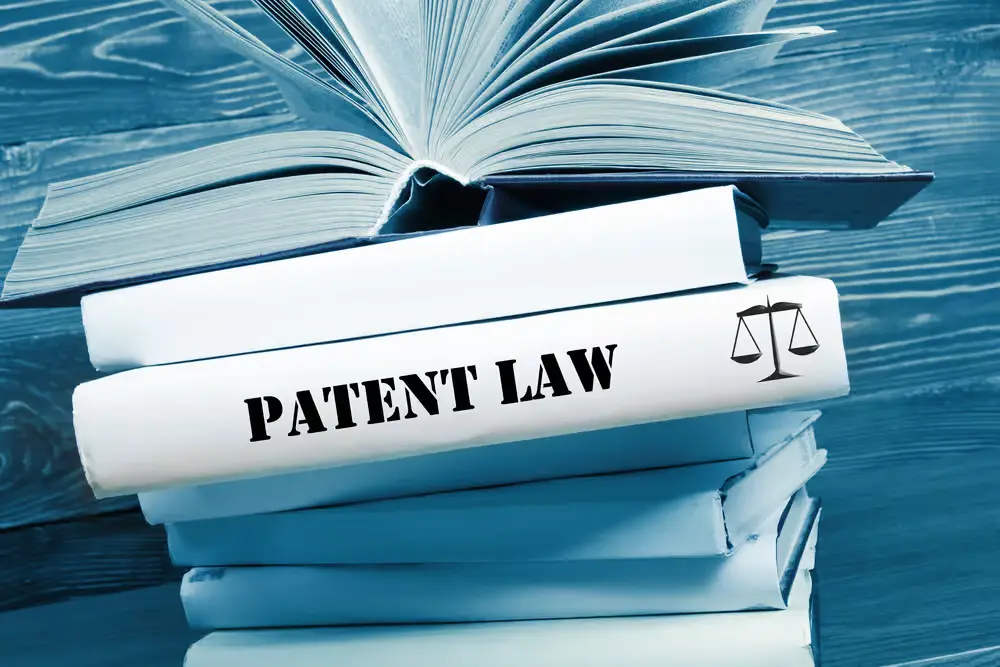
Patent litigation cases, on the other hand, can be navigated with confidence and efficiency with the help of an experienced intellectual property litigation practice like Tucker Law. Our team of lawyers and other professionals will collaborate with you to develop a strategy that is tailored to your specific needs and goals, whether that involves pursuing or defending against patent infringement claims, requesting post-grant review or reexamination, or exploring alternative dispute resolution options.
Significant changes in patent litigation law have occurred over the last quarter-century, including significant decisions by the Supreme Court and the Federal Circuit. Our team, on the other hand, stays on top of these developments, constantly adapting our strategies to the changing landscape in order to achieve the best results for our clients.
If you are involved in a patent litigation case, or if you have questions about the validity or enforceability of a patent, contact Tucker Law today to learn more about how we can assist you. We are well-equipped to handle even the most complex and challenging patent cases due to our extensive legal knowledge and dedication to client service.
How Patent Litigation Can Affect Your Business
Patent litigation can be devastating to businesses, particularly those that rely heavily on intellectual property. In some cases, a patent infringement lawsuit can result in an injunction prohibiting the accused infringer from manufacturing or selling their product, resulting in revenue and market share loss. Furthermore, patent litigation can be time-consuming and costly, diverting resources away from more important business activities. Companies may also be required to pay significant damages or royalties to the patent holder. Businesses must understand the potential impact of patent litigation and take steps to mitigate their risk.
Anatomy of a Patent Litigation Case
Patent litigation can be a lengthy and complicated process with numerous stages. Typically, the patent holder will file a complaint alleging that the accused infringer is using the patented invention without permission. The accused infringer is then given the opportunity to respond to the complaint, and the parties may engage in discovery, in which they exchange case-related information and evidence. Following that, a claim construction hearing may be held, in which the court interprets the language of the patent claims to determine their meaning. The case may then go to trial, where a jury or judge will decide whether the accused infringer violated the patent. If the accused infringer is found to have infringed, the court may issue an injunction and award the patent holder damages.
Common Reasons for Patent Infringement Lawsuits
Lawsuits for patent infringement can be filed for a variety of reasons. In some cases, the patent holder believes that their patent is being violated and wishes to protect their intellectual property. In other cases, the accused infringer may believe that the patent is invalid or that he or she is not infringing at all. Furthermore, some patent infringement lawsuits may be filed to gain a competitive advantage or to negotiate a licensing agreement. Businesses must understand the various reasons why patent infringement lawsuits may be filed and be prepared to defend themselves if necessary.
When it comes to patent litigation, time is money
Patent litigation can be a lengthy process, with some cases lasting several years. The length of the case will be determined by a number of factors, including the case’s complexity, the number of parties involved, and the court’s schedule. Delays may also occur as a result of discovery disputes, claim construction hearings, and other legal proceedings. Businesses should plan for the potential length of a patent litigation case and collaborate with their attorneys to develop a strategy that minimizes the case’s impact on their operations.
Patent Litigation Damage Calculation
One of the most important issues in a patent infringement case is calculating the damages owed to the patent holder. Damages in patent litigation can be calculated in a variety of ways, so having an experienced patent litigation attorney on your side to help you navigate this complex process is essential.
In patent litigation, there are two types of damages that can be awarded: compensatory damages and punitive damages. Compensatory damages are intended to compensate the patent holder for actual infringement-related harm, such as lost profits or a reasonable royalty. Punitive damages, on the other hand, are intended to punish the infringing party for their wrongdoing and can only be awarded in cases of willful infringement.
In a patent litigation case, calculating damages can be a complex and highly technical process that necessitates expert analysis of financial and accounting data. A patent litigation lawyer can collaborate with financial experts and economists to determine the appropriate amount of damages to seek.
Practices for Defending Against Patent Infringement Claims
Being accused of patent infringement can be frightening for any company. Defending against a patent infringement claim necessitates a methodical and strategic approach, and it’s critical to work with an experienced patent litigation attorney to help you through the process.
In a patent infringement case, several defenses can be raised. The accused infringer, for example, may argue that the patent is invalid due to prior art or that the accused product does not infringe on the patent claims. The accused infringer may also claim that the patent is unenforceable due to the patent holder’s unfair behavior.
When defending against patent infringement claims, it is critical to be proactive. This may entail performing a thorough analysis of the accused product, thoroughly reviewing the patent claims, and identifying potential defenses early in the case. An experienced patent litigation lawyer can assist you in developing a strong defense strategy and working to protect your company’s interests.
The Difference Between Patent Litigation and Other Intellectual Property Disputes
Patent litigation is one example of an intellectual property (IP) dispute that may arise in the business world. Trademark disputes, copyright infringement cases, and trade secret litigation are all examples of IP disputes.
While there are some similarities between patent litigation and other intellectual property disputes, there are also some significant differences. Patent litigation, for example, typically entails a more complex and technical examination of the patent claims and the accused product. Expert witnesses and a greater emphasis on scientific and technical evidence may also be used in patent litigation cases.
It is critical to work with an attorney who has experience in the specific area of intellectual property law that is relevant to your case. A skilled intellectual property litigation attorney can assist you in navigating the unique challenges of your case and working to protect your business interests.
What Expert Witnesses in Patent Litigation Do and Why They Are Important
Expert witnesses can be crucial in patent litigation cases. These are typically scientists, engineers, or other technical experts with expertise in the relevant field of the patent.
Expert witnesses can provide important testimony and analysis to help a party’s case. An expert witness, for example, may provide an opinion on whether a specific product infringes on a patent claim or may offer an analysis of the damages owed in a patent infringement case.
In a patent litigation case, selecting the right expert witness is critical. It is critical to work with an attorney who has experience working with expert witnesses and can assist you in locating the best expert for your case.
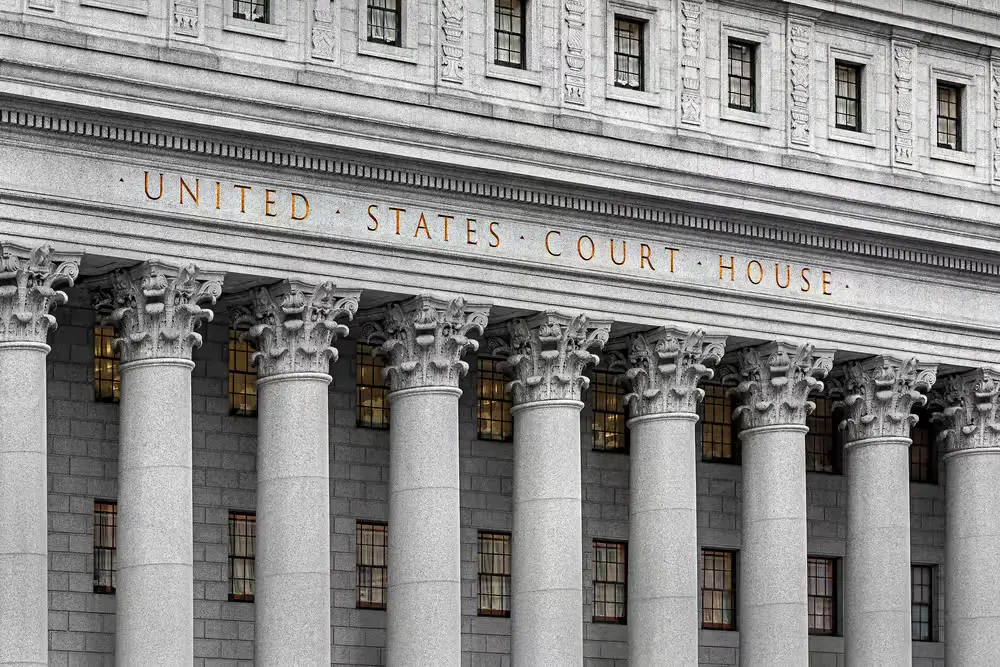
Patent Litigation Law in Transition
Patent litigation law is constantly changing, and it is critical for both businesses and attorneys to stay current on the latest trends and changes. The increasing importance of patent eligibility under the Supreme Court’s Alice decision, which has resulted in a higher rate of patent invalidation, is one recent development. Another trend is the increased use of alternative dispute resolution methods, such as mediation and arbitration, to settle patent disputes outside of court.
International Patent Law’s Influence on Litigation Cases
As businesses increasingly operate on a global scale, it is critical to understand how international patent laws affect litigation cases. The International Trade Commission (ITC), for example, has the authority to prevent infringing imports from entering the United States, and patent holders can file lawsuits in multiple countries to enforce their patents. Furthermore, the proliferation of standard essential patents (SEPs) has increased international cooperation among patent holders in order to avoid litigation and cross-licensing agreements.
Outcomes of Patent Litigation: What Could Happen in Your Case?
In a patent litigation case, there are several possible outcomes, including a finding of direct or indirect infringement, a determination of patent validity, or a settlement agreement. In the event that infringement is discovered, the patent owner may be entitled to monetary damages, an injunction to prevent future infringement, or both. If the patent is found to be invalid, the accused infringer will be held harmless.
Patent Litigation Settlement Options and Strategies
Settlement of a patent litigation case can benefit both parties by avoiding the expense and uncertainty of a trial. Settlement agreements may include a licensing agreement or a payment of damages. One common strategy is for the parties to enter into mediation, in which a neutral third party can assist in facilitating negotiations and reaching a mutually beneficial settlement.
What to Do If You’re Sued for Patent Infringement
If your company is being sued for patent infringement, you should take the situation seriously and seek the advice of an experienced patent litigation attorney. Your attorney can assist you in understanding the claims made against you, evaluating potential defenses, and developing a case strategy. It is also critical to keep all relevant evidence and avoid any actions that could be interpreted as further infringement. You can help ensure the best possible outcome for your case by taking proactive steps and working closely with your legal team.
What exactly is patent litigation?
A legal dispute over the infringement or validity of a patent is referred to as patent litigation. It happens when a patent owner believes that another party has infringed on their patent, or when a party believes that a patent is invalid or was granted incorrectly.
What is the average cost of patent litigation?
Patent litigation costs can vary greatly depending on the complexity of the case and the attorneys involved. Patent litigation, in general, can cost millions of dollars in legal fees and other expenses.
What role does patent litigation play?
Patent litigation is important because it protects inventors’ rights and promotes innovation. Patent holders can prevent others from copying their inventions without permission by enforcing their patent rights, ensuring that they can profit from their ideas.
What are the stages of intellectual property litigation?
Pre-filing investigation, pleadings, discovery, motion practice, trial, and appeal are typical stages of intellectual property litigation.
What exactly is patent litigation, and how does it operate?
Patent litigation is a legal process in which a patent owner seeks to enforce their patent rights by bringing a lawsuit against a party that has allegedly infringed upon their patent. Pre-filing investigation, pleadings, discovery, motion practice, trial, and appeal are all stages of the litigation process.
How can patent litigation impact businesses?
Patent litigation can have a significant financial and reputational impact on businesses. Legal fees and other costs associated with patent litigation can be significant, and the uncertainty of a case’s outcome can cause anxiety and stress. Furthermore, a negative outcome can harm a company’s reputation, making it difficult to attract investors or customers.
What are the stages of a patent litigation case, and what happens at each one?
Pre-filing investigation, pleadings, discovery, motion practice, trial, and appeal are all stages of a patent litigation case. The patent owner investigates potential infringers and gathers evidence during the pre-filing investigation stage. The parties exchange legal documents outlining their claims and defenses during the pleadings stage. The parties exchange information and evidence during the discovery stage through depositions, interrogatories, and requests for documents. During the motion practice stage, the parties may request that the court rule on specific legal issues. The case is presented to a judge or jury during the trial stage, who will decide the outcome. Finally, during the appeal stage, the losing party may file an appeal with a higher court challenging the trial’s outcome.
What are some of the most common reasons for patent infringement lawsuits?
Patent infringement lawsuits are typically filed when a patent owner believes that another party has violated their patent. Copying or using an invention without permission, manufacturing or selling a product that incorporates the patented invention, or violating a licensing agreement related to the patent are all common reasons for patent infringement lawsuits.
How long does typical patent litigation take, and what factors influence the timeline?
Patent litigation can take a long time depending on the complexity of the case, the number of parties involved, and the attorneys representing the parties. Patent litigation can take several years, if not longer, to resolve. The scope of discovery, the number of pretrial motions, the complexity of the legal issues involved, and the scheduling of trial are all factors that can affect the timeline.
What exactly is a patent in the United States, and how does it differ from other forms of intellectual property protection?
A US patent is a legal document that grants its holder the exclusive right to manufacture, use, and sell an invention for a set period of time, typically 20 years from the date the patent application is filed. This type of intellectual property protection differs from others, such as trademarks or copyrights, in that it protects novel and non-obvious ideas and inventions. An inventor must file an application with the United States Patent and Trademark Office (USPTO) and meet a number of stringent requirements in order to obtain a patent.
What exactly is a patent case, and where are these cases typically heard?
A patent case is a legal dispute over patent infringement, validity, or ownership. Typically, these cases are heard in federal court, specifically in the district court for the judicial district in which the defendant resides or where the alleged infringement occurred. Patent disputes may also be heard by the United States International Trade Commission in some cases (ITC).
What is the United States Patent and Trademark Office’s (USPTO) role in patent cases?
The USPTO is in charge of patent granting and management in the United States. The USPTO’s role in patent cases is to examine patent applications, determine the validity of existing patents, and provide evidence and expert opinions to support patent litigation. Furthermore, the USPTO may be involved in post-grant proceedings, such as patent reexamination or reissue.
What exactly is direct infringement, and how does it apply to patent cases?
Direct infringement occurs when someone uses, manufactures, sells, or imports a patent-protected product without the permission of the patent owner. This is a critical issue in patent cases because it is the primary method by which patents are infringed. To establish direct infringement, the plaintiff must demonstrate that the accused product or process contains all of the elements of at least one patent claim.
What exactly is a preliminary injunction and how does it work in patnt cases?
A preliminary injunction is a court order that requires a party to stop doing something, such as selling a product, while the case is being heard. Preliminary injunctions are frequently sought by patent owners in patent cases to prevent alleged infringers from continuing to manufacture or sell a product while the case is being decided. To obtain a preliminary injunction, the plaintiff must show that they are likely to win the case on the merits, that they will suffer irreparable harm if the injunction is not granted, and that the balance of hardships between the parties favors the plaintiff.
What exactly is the Eastern District of Texas, and why is it known as the “rocket docket” for patent cases?
The Eastern District of Texas is a federal judicial district in Texas that has earned a reputation for handling patent cases efficiently. The district is known for being plaintiff-friendly and having quick case schedules, earning it the nickname “rocket docket” for patent cases. As a result, the Eastern District of Texas has become a popular venue for patent cases, especially among non-practicing entities or patent trolls.
FREE Case Review
Patent Litigation Help
There are several reasons why someone may want to engage our firm for their patent litigation needs. Firstly, our team has extensive experience in litigating complex patent disputes and has a deep understanding of the intricacies of patent law. We can help clients navigate the legal complexities of patent litigation and provide them with sound legal counsel. Secondly, we have a successful track record of achieving favorable outcomes for our clients in patent litigation cases. Our team can provide invaluable assistance in developing and executing effective litigation strategies.


Mobile Office
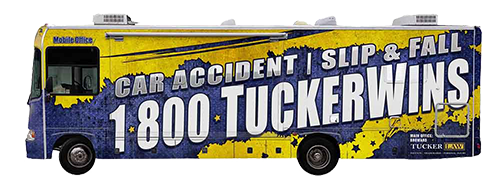
Whether you are injured or have an idea for an invention, Tucker Law has the ability to meet clients anywhere in Florida. Ask our staff about our mobile office. That is why we can meet clients with our 32 foot mobile office anywhere. From driving to the scene of a crash, to meeting with accident victims at their house or other safe locations, our mobile office can help you regardless of your location or your ability to drive.
